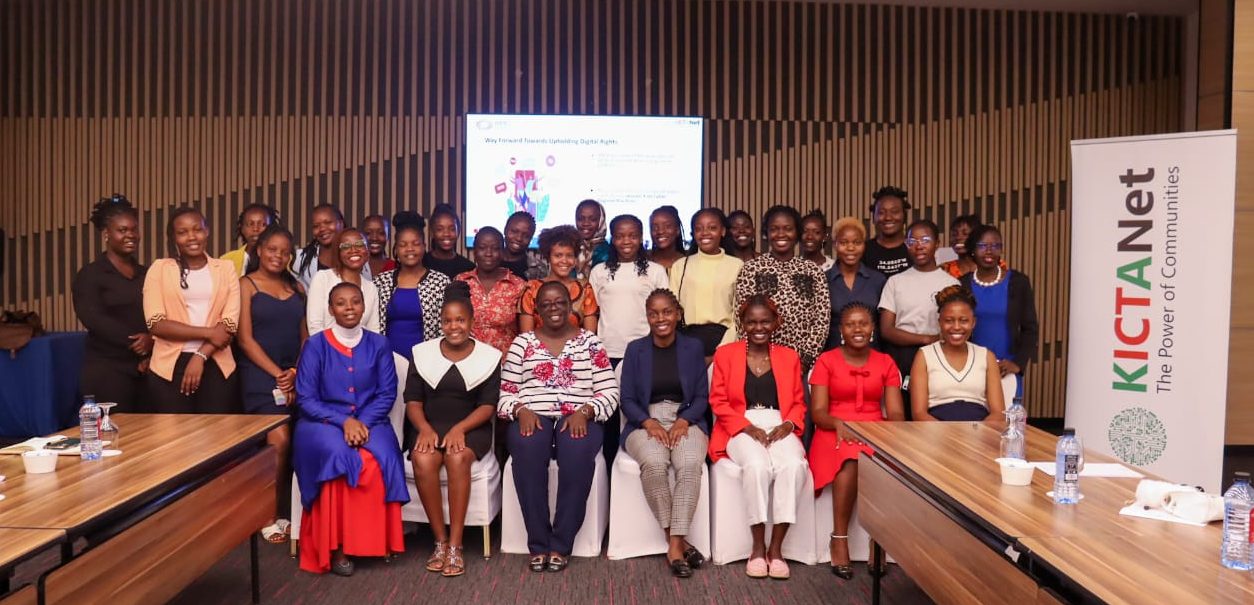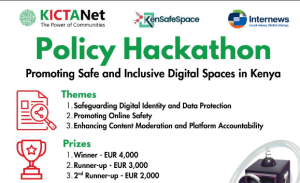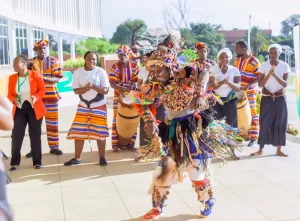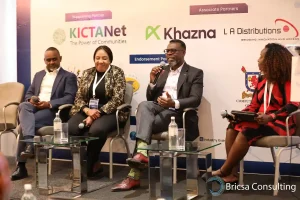By Cherie Oyier
The internet plays a crucial role in enabling citizens to exercise their rights and freedoms, as well as improve their socioeconomic standing.
However, data from 2023’s “Unmasking The Trolls: Research on Online Gender-Based Violence in Kenya” report showed that online gender-based violence (OGBV) is prevalent in both urban and rural areas of Kenya.
In the report conducted across 28 towns in Kenya, while the majority of respondents who experienced OGBV lived in urban areas (63%), a significant portion (37%) also reported experiencing it in rural areas. This indicates that OGBV is not confined to urban centres but is a widespread issue.
Based on the demonstrated high percentage of OGBV prevalence in urban areas, KICTANet has conducted extensive training for women in their various diversities in Nairobi and its environs following the findings of the research.
The capacity building workshop held in Kisumu on 27th September 2024, is a positive step towards addressing the issue of OGBV in Kenya.
By providing women with knowledge of digital safety and privacy, KICTANet and the Association of Progressive Communications (APC) are equipping them with the tools to protect themselves from online harassment and abuse.
This initiative is important for women living outside Nairobi, as they may face unique challenges and vulnerabilities related to digital safety.
The pre-workshop evaluation survey revealed a significant knowledge gap among participants regarding existing laws and policies on digital rights and online threats faced by women.
These findings highlight the urgent need for capacity-building initiatives to address these gaps and empower women to protect themselves from OGBV.
Some key takeaways from the survey:
- Lack of awareness of laws and policies: Only 43.5% of participants were aware of existing laws and policies on digital rights. This suggests a need to raise awareness about these legal frameworks and educate women on their rights and protections in the digital space.
- Limited understanding of online risks and threats: Only 21.7% of participants understood the various risks and threats women face online. This indicates a lack of knowledge about the different forms of OGBV and how to identify and prevent them.
These findings underscore the importance of the capacity-building workshop in Kisumu and the ongoing need for such initiatives to combat OGBV across Kenya. By providing women with knowledge of digital safety and privacy, these workshops can help bridge the knowledge gap and empower women to take control of their online experiences.
It is, therefore, imperative to promote digital safety through capacity-building initiatives that focus on vulnerable demographics such as women living in rural areas and with low digital literacy skills.
Training of these groups on the potential risks online, how to safely navigate online platforms, how to report OGBV incidences and the relevant laws, regulations and policies that safeguard their digital rights contribute to enhancing safety on digital platforms.
Safe digital platforms mean more women are confident to use the different platforms to contribute to public interest discourses, conduct businesses, entertain, and campaign for political seats among other activities without fear of being targeted for online abuse and violence. By including all voices, societies therefore stand to enhance their democracies, governance and economies.
As we continue to impart knowledge on OGBV and contribute towards safer online spaces for women in their diversities, we also are on a quest to learn about knowledge gaps and the unique experiences different demographics face about OGBV. From these key learnings, we can curate different interventions to combat the prevalence of OGBV to fit specific needs.
Ms Cherie Oyier is KICTANet’s Programs Officer for the Women’s Digital Rights Program.
![]()




